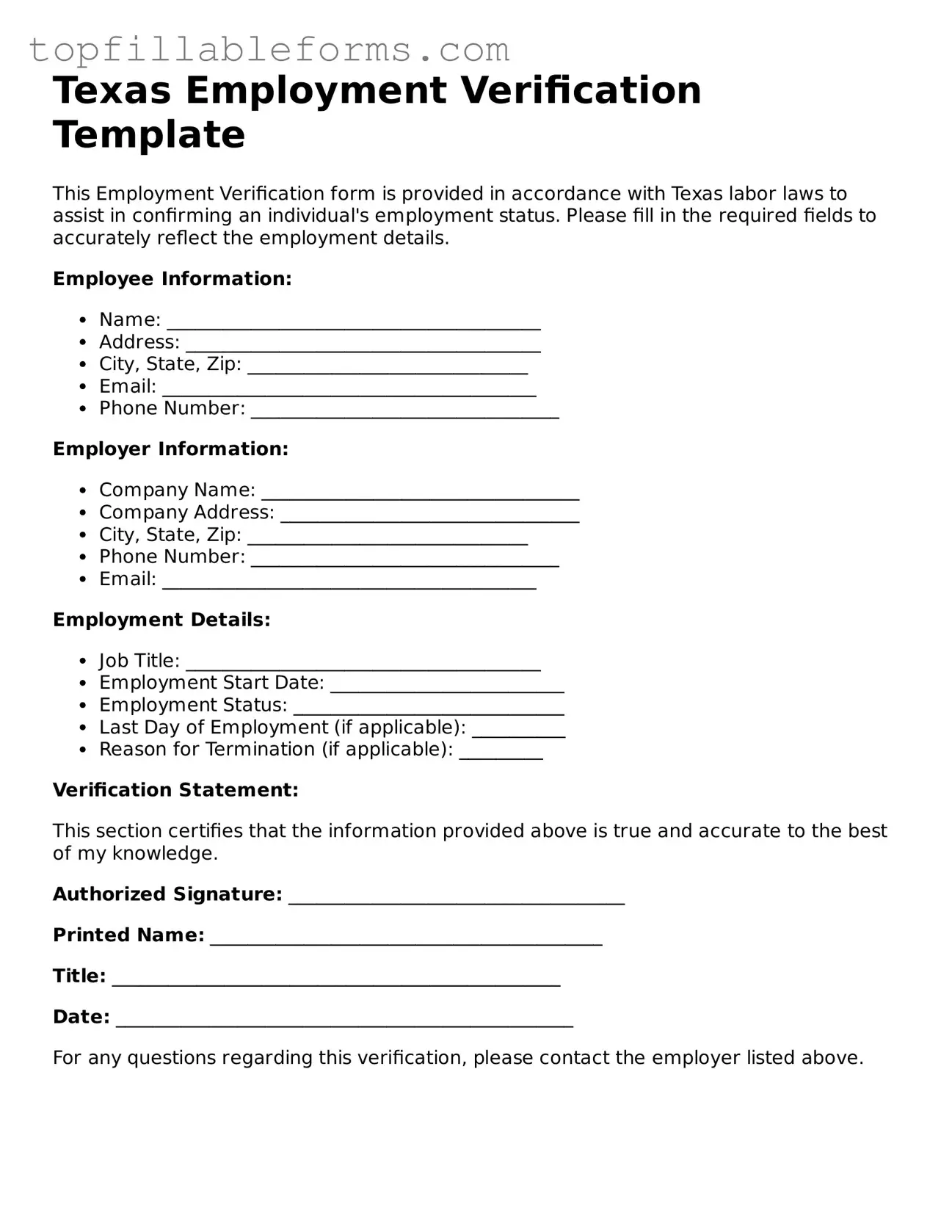Attorney-Verified Employment Verification Template for Texas
The Texas Employment Verification form is a document used by employers to confirm an employee's work history and eligibility for employment. This form plays a crucial role in ensuring compliance with state regulations and can be essential for various applications, such as loans or housing. Understanding how to complete and submit this form correctly can benefit both employers and employees alike.
Open Employment Verification Editor Here

Attorney-Verified Employment Verification Template for Texas
Open Employment Verification Editor Here
Finish the form now and be done
Finish your Employment Verification online by editing, saving, and downloading fast.
Open Employment Verification Editor Here
or
▼ PDF File
